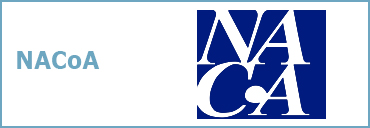Share

April is Alcohol Awareness Month, a wonderful (and often missed) opportunity to not only help your clients understand how alcohol affects them, but also to help them focus on the messages theyíre sending their children.
Focus on Parenting
It’s said that children see their self-worth reflected in their parents’ eyes. Ask your clients to consider what their children see when they look into their parents’ eyes when their parents are drunk.
This past doesn’t need to predict the future.
There are two very different reasons why it’s in your clients’ self-interest to focus on developing parenting skills:
1. Their Children Are at Risk for Addiction
Your clients often live with their children, or at least have contact with them, and children mirror their parents’ actions.
Children love and look up to their parents. Their parents are their window into how the world works and into what actions they should take. It’s not surprising when we see toddlers repeating what their parents say after dropping something, even if it’s an expletive. In fact, we think this type of copying is cute. So it shouldn’t surprise us when we see children mimicking their parents in other areas of their life, like numbing their frustrations with school or an unfair teacher or boss, or numbing the pain of a broken heart.
We know that parents anesthetizing their frustrations with alcohol and drugs sets the stage for the next generation to do the same. The result for their children can
be alcoholism, mental health problems, and even physical health problems. The next reason, though, is one that many haven’t considered.
2.Poor Parenting is a Relapse Trigger
On an immediate and personal level, “Poor parenting is a major relapse trigger for your clients” (O’Gorman & Diaz, 1987, 2004). Your clients’ feelings of anger and frustration (natural to parenting), coupled with guilt for past actions—often intensi-fied by a lack of parenting skills—are a set-up to do what’s familiar: medicating feelings of inadequacy.
You Can Recast Annual Drunking Days
The Fourth of July, Memorial Day, and Veteran’s Day are supposed to be days to celebrate our freedom as a country with parades, memorial services, prayers, flag waving, and family gatherings. With the advent of heavy advertising of alcohol, these classic American celebrations have morphed into drunking days. They are frequently excuses for barbeques where lots of drinking and drug use are the norm, and where your clients’ children are a confused or even terrified captive audience.
We’ve just survived St. Patrick’s Day, which has become the fourth most-celebrated drunking day in America after New Year’s Eve, Christmas, and the Fourth of July. Your clients may have participated in a pub crawl, going from bar to bar and get-ting as drunk as possible as quickly as possible. Some may have had their children in tow.
In recovery, particularly during holiday celebrations, your clients will want their children to know that they are highly val-ued. You can help your clients develop the courage to take steps that will reflect back to their children the unconditional love that they feel inside. One very enjoyable way of doing this is to change how upcoming national holidays are celebrated in the family.
Children of those with addiction frequently don’t anticipate a good time as they look forward to these holidays. This means that in sobriety your clients now have to figure out how to explain to their children how their desire to “cut loose” and “have fun” may have put them and their children in danger. It also means that this is a golden opportunity to begin to do things dif-ferently.
Crisis is an Opportunity
Crisis is an opportunity for changing how your clients lead their families in sober celebrating.
To get started, ask your clients:
How they have spent Memorial Day and the Fourth of July in the past
What they liked about their celebrations in the past
What their children liked about those celebrations
What they feel they need to change so that they can stay sober and move their family toward recovery
What traditions they would like to keep
Who can support them in making the needed changes
How they can model for their children having sober fun at family gatherings to begin to teach their children strategies for sober fun
This is important because each family is different; each family has different strengths, different traditions, and different pri-orities.
Help Clients Become Strong, Sober Models of Adulthood
Now go deeper.
Triggers for use over the holidays are frequently embedded not only in family traditions but also in cultural beliefs about the role of women and men in each family. This translates into how your clients’ children see their parents balancing these subtler expectations of family and friends, some of which directly contribute to the pressure to use.
Tell Women: Don’t Let Girly Thoughts Drive You to Drink
One reason women get drunk on days like the Fourth of July is because they have internalized toxic societal messag-es—which I have named girly thoughts (O’Gorman, 2014)—into negative self-talk. Their girly thoughts tell them they must be the “good girl” and not make waves by questioning the actions of those they love, even if this leads them to engage in harmful behaviors. Getting drunk on a holiday or at a holiday celebration is one of those harmful behaviors.
So if they aren’t going to use on these days, how can they challenge the notion that they aren’t being “bitchy” or a “party pooper” if alcohol isn’t allowed at a party they throw? How do they resist the urge to drink when attending someone else’s party?
Here are some ways to utilize this in group work:
Normalize the subtler pressure that women feel
Introduce the concept of girly thoughts
Have women learn to get support from each other by laughing at how ridiculous the pressure to be a “good girl” really is
Develop ideas for ways to free their daughters and sons from living up to crippling cultural expectations
Tell Men: Man Up and Be a Real Hero
Part of the pressure men feel is to have all the answers, to be confident and in control, and to not feel vulnerable. Drinking helps numb this pressure, and not drinking means standing out from the pack and possibly being challenged. Again, getting drunk on a holiday is one of those harmful behaviors that they can now change, and that change will impact not only their re-covery but also their children’s future.
So if they aren’t going to use on these days, how can they demonstrate their power when sober? How can they challenge the notion that alcohol is necessary for a celebration without looking like a “wimp” or a “party pooper”? How do they resist the temptation to “be a man” when everyone around them is drinking?
In group work,
Normalize the subtler pressure that men feel to be tough and in control
Develop support between men for how painful it is to be confined by gender stereotypes such as “real men can hold their liq-uor”
Discuss how men can distance themselves from a group that’s drinking heavily, and how this has an upside: it can make each man a hero, particularly in the eyes of his children
Determine where opportunities to be a real hero at these celebrations are by showing friends and children other ways to enjoy this special day
Now jump into the deep end and develop a parenting program for your treatment program. Challenge your clients to focus on developing their parenting skills, not only for their children’s sake, but also for their own continuing sobriety—a true win-win! c
About the Author
Patricia O’Gorman, PhD, is a best-selling author, psychologist, resiliency coach, and international speaker known for her warm presentations. She is the author/coauthor of nine books, three about women. Her latest is The Girly Thoughts 10-Day Detox Plan: The Resilient Woman’s Guide to Saying NO to Negative Self-Talk and YES to Personal Power.
References
O’Gorman, P. & Oliver-Diaz, P. (1987). Breaking the cycle of addiction: A parent’s guide to raising healthy kids. Deerfield Beach, FL: Health Communications, Inc.
O’Gorman, P. & Diaz, P. (2004). The lowdown on families who get high: Successful parenting for families affected by addiction. Washington, DC: Child and Family Press.
O’Gorman, P. (2014). The girly thoughts 10-day detox plan: The resilient woman’s guide to saying no to negative self-talk and yes to personal power. Deerfield Beach, FL: Health Communications, Inc.
About Me
Larry Hearn is a seasoned SUD counselor, licensed Religious Science Practitioner, and a committed advocate for healing and personal transformation. Armed with a Social Model Studies Certificate from the CCAPP Academy (formerly known as the CAARR Institute), education from Modesto Junior College, and certification from CCAPP, Larry boasts a robust 24-year background in addiction counseling. As a member of the California Coalition of Certifying Organizations (CCCO), he played an active role in shaping the California Code of Ethics and Sanctions Matrix.
Larry currently serves as Supervising Editor for Counselor Magazine and Media & Infrastructure Manager for the California Consortium of Addiction Programs and Professionals (CCAPP), where he combines his clinical insight with media and educational strategy to uplift the profession and support the workforce.
His passion extends to facilitating treatment and education groups, grief circles, and individual counseling, creating a secure and supportive environment for individuals to navigate recovery, grief, and emotional trauma. He enjoys training and mentoring SUD counselors. In his capacity as a licensed Religious Science Practitioner, he seamlessly integrates therapeutic and spiritual modalities, guiding individuals on a journey toward enduring recovery and inner peace. Beyond addiction counseling, Larry underscores the significance of grief healing and personal growth in his compassionate approach.











 Counselor Magazine is the official publication of the California Association of Addiction Programs and Professionals (CCAPP). Counselor offers online continuing education, article archives, subscription deals, and article submission guidelines. It has been serving the addiction field for more than thirty years.
Counselor Magazine is the official publication of the California Association of Addiction Programs and Professionals (CCAPP). Counselor offers online continuing education, article archives, subscription deals, and article submission guidelines. It has been serving the addiction field for more than thirty years.